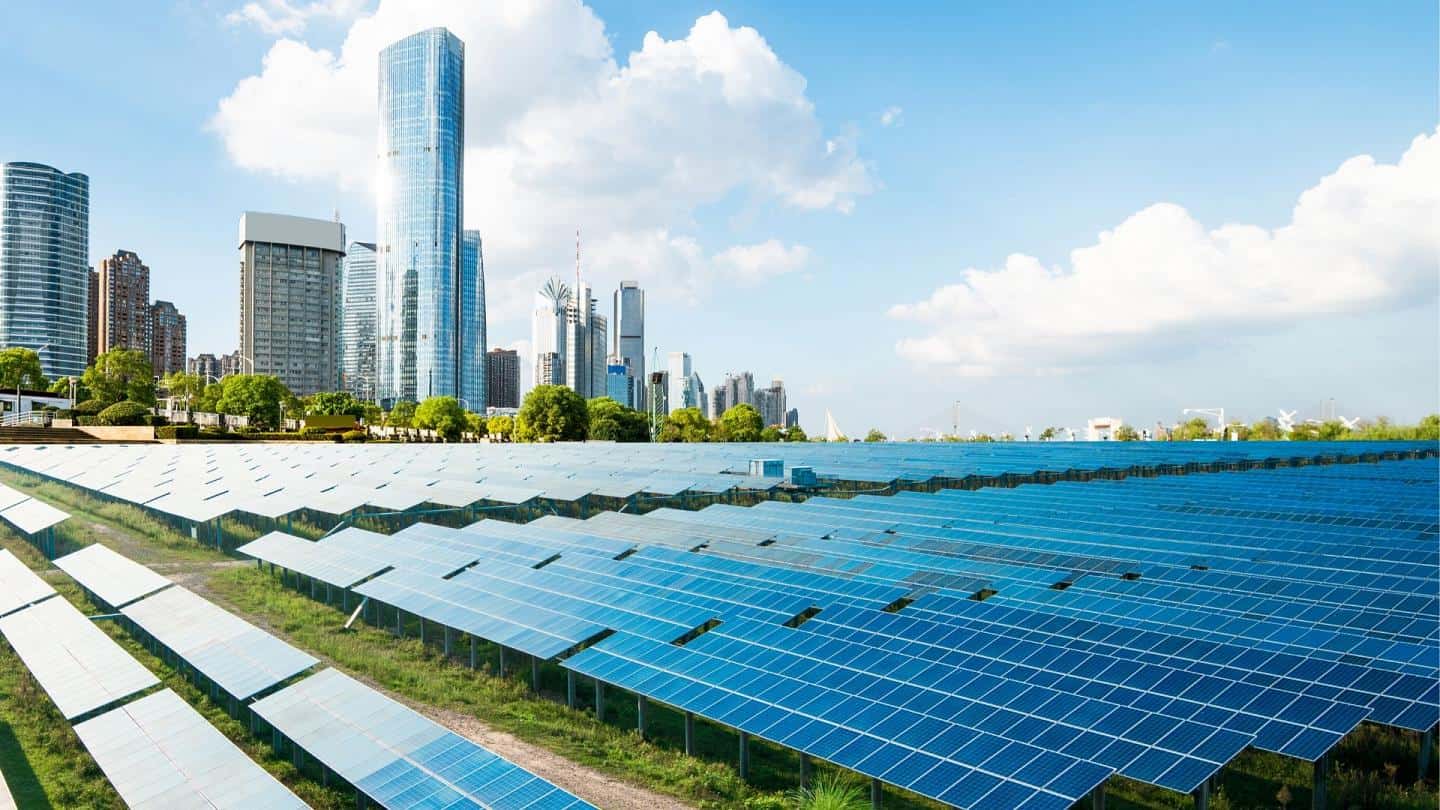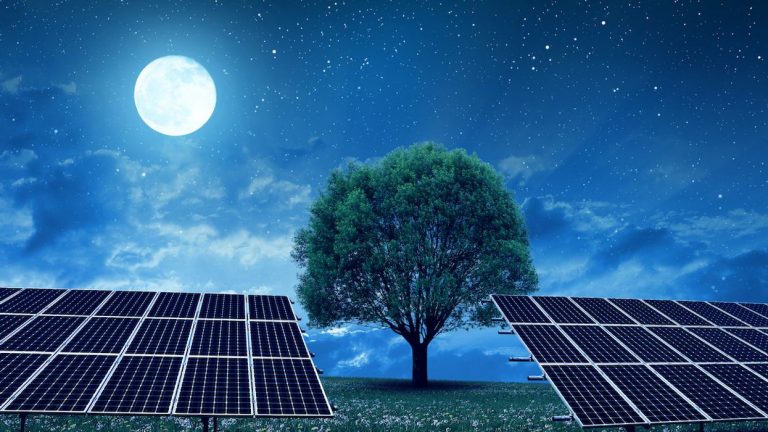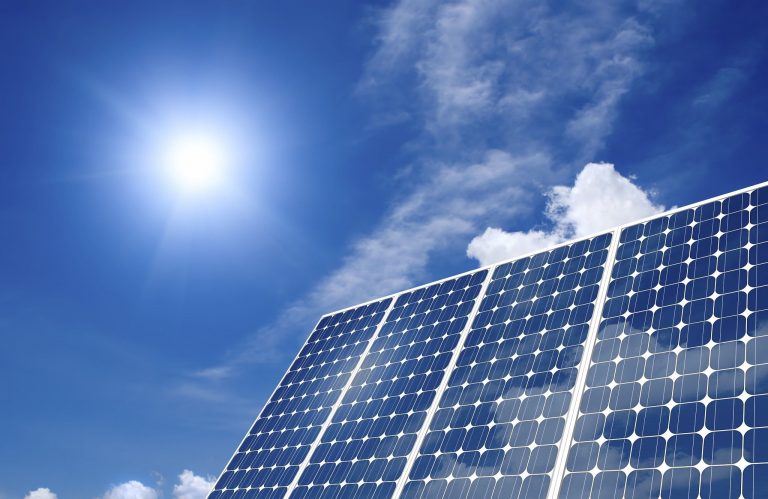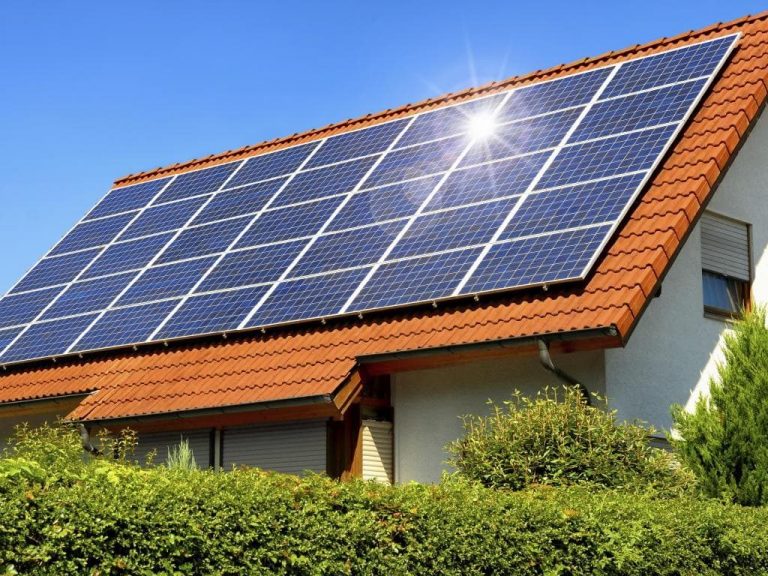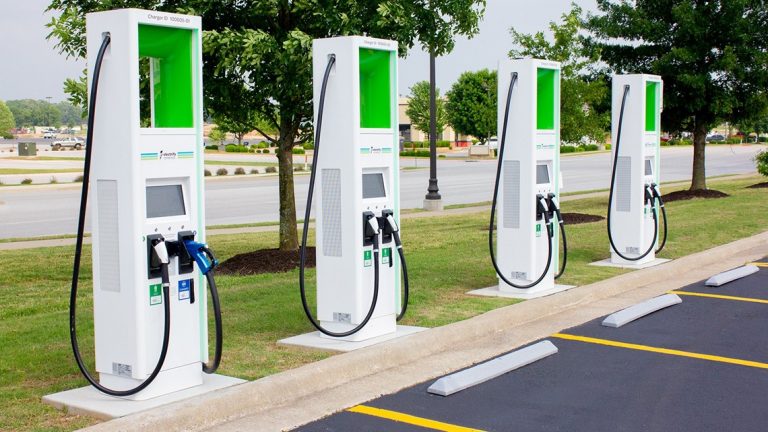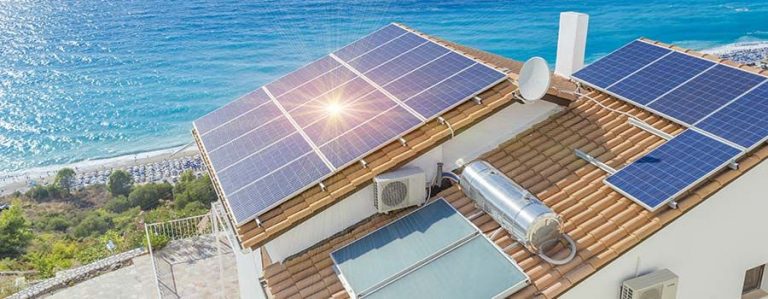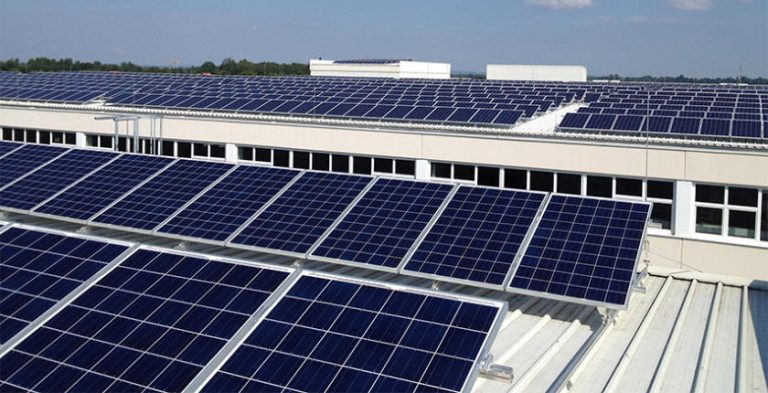Solar panels FAQ 2021
The solar ecosystem is rapidly expanding to include all sorts of appliances — for cheap and environment-friendly power generation. It is also a guarantee of energy security with durable devices extracting a perpetual energy resource.
The basic building blocks of any solar grid are the solar panels. In this article, we’ll unmask some of the solar panels FAQ about the same — and try to clear misconceptions, if any.
Solar panels FAQ: a complete guide to how, what and why
Solar Panels FAQ 1: What are solar panels made of?
They’re usually made of silicon, which is an ideal semiconductor and is crucial to the principle of solar panels. The outermost shell of a silicon atom consists of 4 electrons. The silicon atoms bond with other neighboring atoms to fill their shells. It is an electrically dormant state.
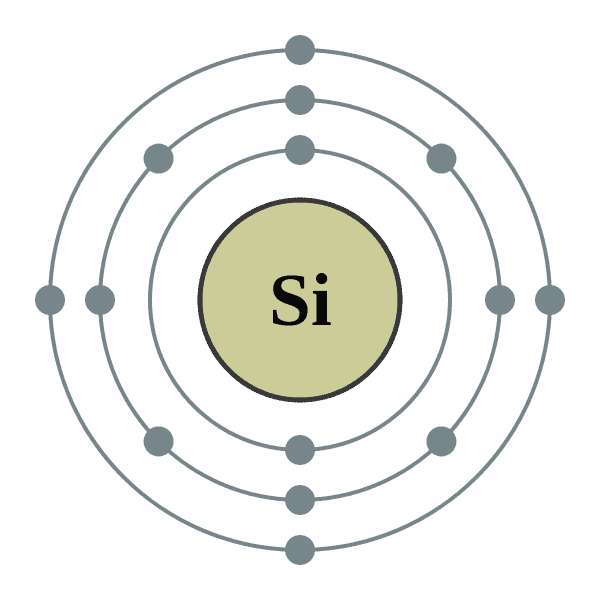
It is why silicon panels have impurities alongside silicon, preferably phosphorus, making it an N-type semiconductor. Phosphorus has 5 electrons in its valence (or outermost) shell. The extra electron helps conduct electricity. It is called a “free carrier,” which is boosted by adding an adequate amount of impurities.
Solar Panels FAQ 2: What is the principle behind the working of a Solar Panel?
Solar panels work on the principle, “Photovoltaic Effect.” A French physicist named Edmond Becquerel discovered it in 1839. He was studying the effects of sunlight on electricity and concluded that current could be produced using solar radiation.
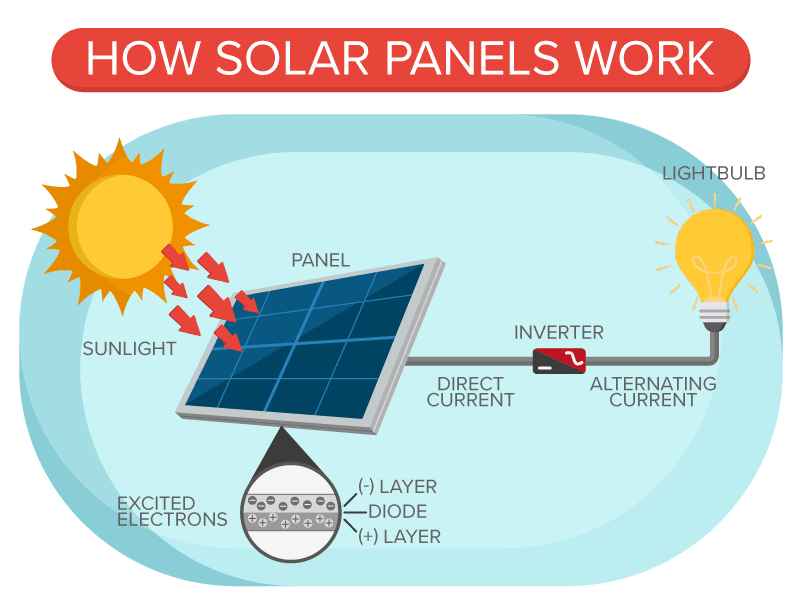
However, any medium that could make use of the principle wasn’t yet devised until 100 years later. It is when a group of three scientists jointly built the first silicon solar cell in 1954.
Solar Panels FAQ 3: How do I decide the number of solar panels to use in the circuit?
It depends upon your energy usage and the wattage of the panels. There’s a standard procedure to calculate the exact number of panels needed for your household. Check out this piece for more on this, or head over to our calculator directly.
Solar Panels FAQ 4: Can solar panels work during overcast conditions?
Of course! They’re never really dormant. Even during the rains, the sky is never devoid of solar radiation. Though, they work on diminished efficiencies during cloudy or rainy outdoor conditions. They’re only at 10-15% of their efficiency when the conditions are overcast.
Solar Panels FAQ 5: Following up: Do solar panels work at night?
No, they don’t. The panels go into sleep mode and remain inactive for the duration of the night hours. The output they can yield at night is minuscule, so it’s economical to have them turned off.
Solar Panels FAQ 6: Do the panels work the best in the hottest conditions?
While sunny days are the best for power generation, extreme temperatures and humidity can cause the panels to lose their efficiency. There’s a thing called the temperature coefficient of solar panels.
If a solar panel has a rated temperature coefficient of -0.4°C, it means the system will register a drop of 0.4℅ in efficiency for every 1° C rise in temperature.
Solar Panels FAQ 7: How long can a solar panel work?
Most solar panels have a service life that spans decades. Twenty-five years is the standard period for most of them. Since the solar panel is a long-term investment for energy security, you need to be careful to choose the kind of panels for your grid. These panels should come with good brand reliability and strong financials of the manufacturer so that the company continues to be in the markets until the warranty period.
Solar Panels FAQ 8: How much does the maintenance of the panels cost?
Solar panels are made to last for decades. As such, it isn’t unnatural to think of the maintenance costs. You’ll be surprised to know that the panels need little to no maintenance at all. They’re built with high-quality tempered glass. It is why you not only buy yourself energy security but don’t have to worry about additional maintenance costs either.
Solar Panels FAQ 9: What are on and off-grid connections?
When you incorporate the solar ecosystem for your household, you’re still connected to the grid. This way, you can draw power from the grid when your system is unable to work at the max efficiency. You can also export the additional power back to the grid if your panels end up producing extra output.
Off-grid solar connections have an additional battery for storage of the generated power. They’re independent of the grid and are usually more expensive compared to their on-grid counterparts.
Solar Panels FAQ 10:Are the panels economical in the long run?
Of course, they are! A study suggests that the cost per unit of solar power is 40% lower than its carbon alternatives. It is as low as INR 1.44/unit kWh at some places. The solar panels pack an energy-secure and energy-economical system.
Bottom line: Where do we buy the panels? What is the installation process?
You can choose to get the solar panels at your local vendor or online stores like ours. Make sure to have a check on the financials and the brand reliability of the manufacturers. We, at VHIL, only feature the best and budget-friendly panels personalized for an Indian household, with quality uncompromised.
If you buy at our place, you bet on long-term support for your panels. You can have our support staff do the assembly and installation for you or choose to get it done by your local technician. You can still hit us up for live/recorded assurance.
